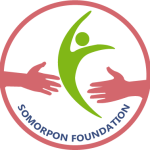Obsessive Compulsive Disorder (OCD) Treatment
Obsessive Compulsive Disorder is a common mental health condition. 1-2% of people across the nation are affected by it. In the United States, 2.3% of adults experience OCD at some point in their lives. The symptoms of OCD include repetitive, unwanted thoughts and behaviors that can disrupt daily routines.
OCD symptoms usually begin during adolescence, with an average age of 19 years old. For many individuals, signs of OCD start before the age of 18, with 50-60% of cases occurring in this younger age group.
Additionally, OCD rarely exists alone. Around 90% of individuals with OCD also have other mental health conditions, such as anxiety or depression. These co-existing conditions often make the disorder harder to treat, necessitating complex management strategies.
Key Takeaways
- OCD treatment options include Cognitive Behavioral Therapy, Exposure and Response Prevention, and medications.
- Deep TMS is a newer treatment option for serious OCD cases.
- Approximately 70-80% of OCD patients improve with a combination of therapy and medication.
What Is Obsessive-Compulsive Disorder (OCD)?
Obsessive-Compulsive Disorder is a mental condition that causes people to experience strong, unwanted thoughts (obsessions). These often lead to repetitive actions (compulsions).
- Obsessions: Persistent, distressing thoughts or worries.
- Compulsions: Actions performed to reduce anxiety caused by obsessions, such as excessive handwashing.
Even though people with OCD recognize their thoughts or actions as irrational, they find it hard to stop. With the right help, including therapy or medication, OCD symptoms can improve.
Causes and Risk Factors of OCD
While scientists have not pinpointed the exact cause of OCD, several contributing factors are believed to be involved:
- Biological Factors: Research suggests that certain brain regions, such as the orbital gyrus and caudate nucleus, function differently in individuals with OCD.
- PANDAS (Paediatric Autoimmune Neuropsychiatric Disorders Associated with Streptococcal Infections): In rare cases, some children develop OCD symptoms after a strep throat infection.
- Genetic Factors: OCD may run in families, but no specific gene has been identified as the cause.
- Chemical Imbalance: Imbalances in serotonin may contribute to OCD symptoms.
- Psychological Theories: Learning theories suggest that OCD behaviors develop as a response to stress or trauma.
Diagnosis of Obsessive Compulsive Disorder (OCD)
Diagnosing OCD involves evaluating obsessions and compulsions that cause distress or interfere with daily life. Healthcare professionals typically look for:
- Symptoms lasting more than an hour a day.
- Recognition that thoughts and actions are excessive.
- A significant impact on daily life.
Doctors may ask questions such as:
- Do you wash or clean excessively?
- Do you frequently check things?
- Do certain thoughts bother you that you can’t stop?
A full diagnosis requires a comprehensive assessment, usually taking about an hour.
Types of Treatment for OCD
OCD treatment includes therapy, medication, and in severe cases, advanced procedures.
Cognitive Behavioral Therapy (CBT) & Exposure and Response Prevention (ERP)
CBT, especially ERP, helps patients confront their fears without resorting to compulsive behaviors. Mild OCD cases may require 8-20 sessions, while severe cases need longer treatment.
Medications
Selective Serotonin Reuptake Inhibitors (SSRIs) like Prozac or Zoloft help regulate brain chemistry, reducing OCD symptoms. Medication effects take several weeks and may be needed long-term.
Advanced Treatments
For severe OCD cases unresponsive to standard treatments:
- Deep Transcranial Magnetic Stimulation (Deep TMS): A non-invasive procedure using magnetic fields to stimulate brain areas linked to OCD.
- Intensive Outpatient Programs (IOP) & Residential Care: Comprehensive programs for severe cases.
- Surgical Interventions: Deep Brain Stimulation (DBS) is considered when all other options fail.
Steps of the OCD Treatment Process
- Initial Assessment and Admission: Evaluating the patient’s mental and physical state to create a personalized treatment plan.
- Inpatient and Outpatient Care: Patients can choose between inpatient treatment for intensive care or outpatient programs to continue their daily routines.
- Follow-Up and Aftercare: Ongoing therapy and medication management ensure long-term success and relapse prevention.
Effective OCD Treatment Approaches
Cognitive Behavioral Therapy (CBT)
CBT, particularly ERP, is the most effective therapy. It gradually exposes patients to fears, reducing their compulsive responses.
Medication
SSRIs help balance brain chemicals and alleviate OCD symptoms, though side effects may occur.
Deep Transcranial Magnetic Stimulation (Deep TMS)
Approved in 2018, Deep TMS is a breakthrough for treatment-resistant OCD, offering a non-invasive option with minimal side effects.
Invasive Treatments
For extreme cases, surgical options like Deep Brain Stimulation (DBS) modify brain circuits responsible for OCD. These procedures are considered only when other treatments fail.
Rehabilitation Programs for OCD at Somorpon Foundation
At Somorpon Foundation, we offer comprehensive rehabilitation programs for individuals suffering from OCD. Our centers are staffed with dedicated professionals who use a unique approach combining therapy, medication, and support groups to ensure lasting recovery.
Latest Trends in OCD Treatment
Innovative treatments like Deep Brain Stimulation (DBS) and Transcranial Magnetic Stimulation (TMS) are proving effective for patients unresponsive to traditional methods. These advanced approaches provide new hope for managing OCD symptoms.
Success Rates and Effectiveness of OCD Treatment
Studies indicate that 70-80% of individuals with OCD show improvement with a combination of CBT and medication. Early intervention and a well-structured treatment plan significantly enhance recovery chances.
At Somorpon Foundation, our goal is to provide effective, evidence-based treatments to help individuals regain control of their lives. If you or a loved one is struggling with OCD, seek professional help today.












